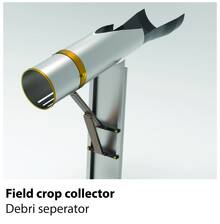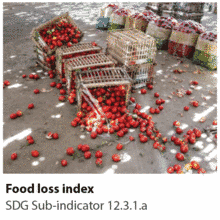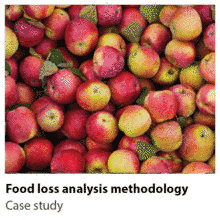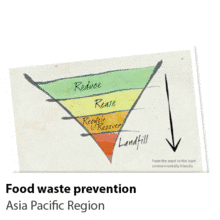Food Loss and Waste tools
Food loss and waste reduction should be seen as a means towards achieving other objectives, including improving food security and nutrition, reducing greenhouse gas emissions, lowering pressure on water and land resources and can increase productivity and economic growth. The tools and techniques which are very popular the field is illustrated and clustered in this page for easy and complete information for your action and its application.

Technologies
FAO FLW is a platform where you can find practical information on post-harvest technologies and practices to help small producers in the field. In addition, you can download the documents for your projects. All documents are in editable format makes it easy to integrate your ideas and improve adaptability.
Others:

Climate Change
Climate change threatens our ability to ensure global security, eradicate poverty and achieve sustainable development. Greenhouse gas (GHG) emissions from human activity and livestock are a significant driver of climate change, trapping heat in the earth's atmosphere and triggering global warming.

FAO Statistics
FAO Stat provides free access to food and agriculture data for over 245 countries and territories and covers all FAO regional groupings from 1961 to the most recent year available. You can download the excel dataset and high-definition document for your project and use.

Digitalization and Innovation
Digital technologies have the potential to boost more inclusive and sustainable growth by spurring innovation, generating efficiencies and improving services. They are also an important tool in helping countries to confront and recover from the COVID-19 pandemic that has disrupted economics and societies globally.

Standards
Climate The Codex Alimentarius covers all foods, whether processed, semi-processed or raw. In addition to standards for specific foods, the Codex Alimentarius contains general standards covering matters such as food labelling, food hygiene, food additives and pesticide residues , and procedures for accessing the safety of food derived from modern biotechnology. It contains guidelines for the management of official i.e governmental import and export inspection and certification systems for foods.

Capacity development tools
Capacity development is a major challenge. Technical co-operation and various forms of capacity building have absorbed substantial funds over many decades. While a few countries have done well, donor efforts in many countries have produced little to show in terms of sustainable country capacity.

By-product management
A by-product or byproduct is a secondary product derived from a production process, manufacturing process or chemical reaction; it is not the primary or service being produced. A by-product can be useful and marketable, or it can be considered waste.

Virtual Expo
FAO Virtual EXPO is made up of marketplaces where small scale holders, producers and small and medium scale suppliers from around the world meet. Our aim is to provide a public platform for small and medium scale enterprenuers on real time to showcase your innovations and technical capacities for sustainable agriculture and post-harvest operation to reduce food loss and waste. For more information contact [email protected]
























